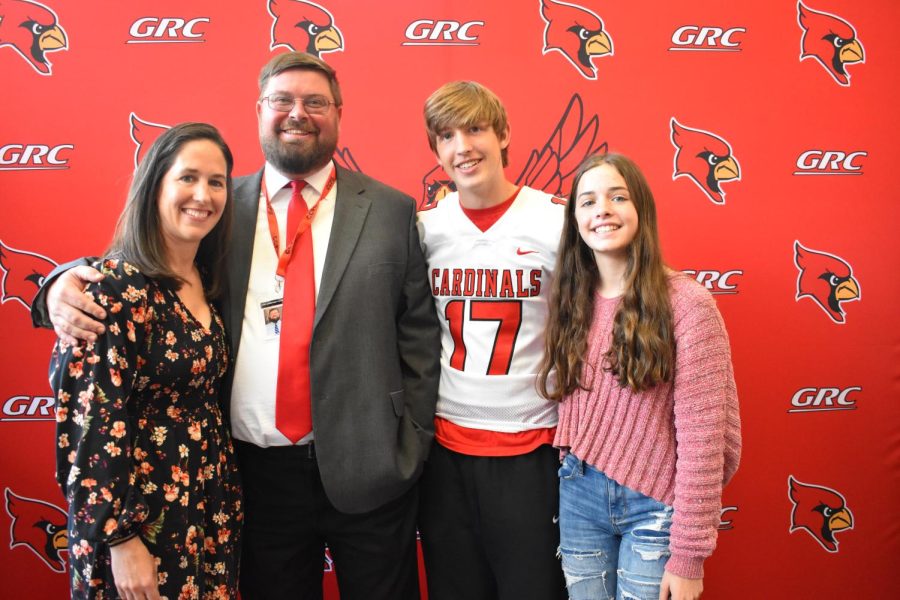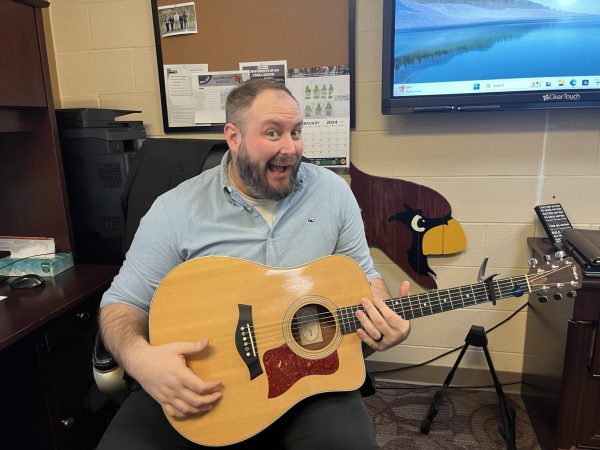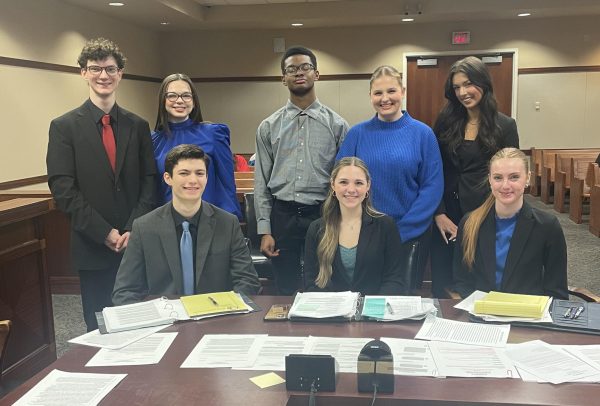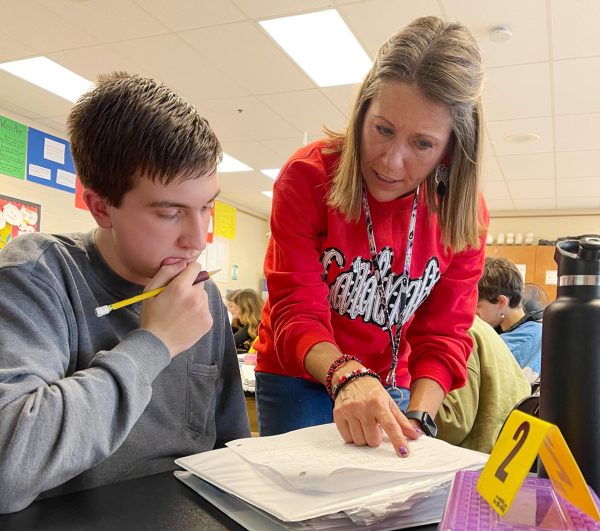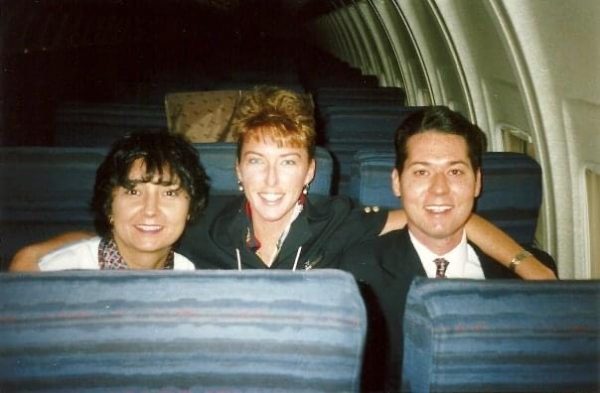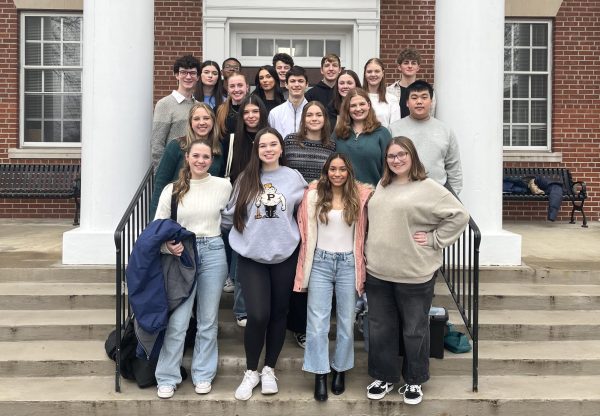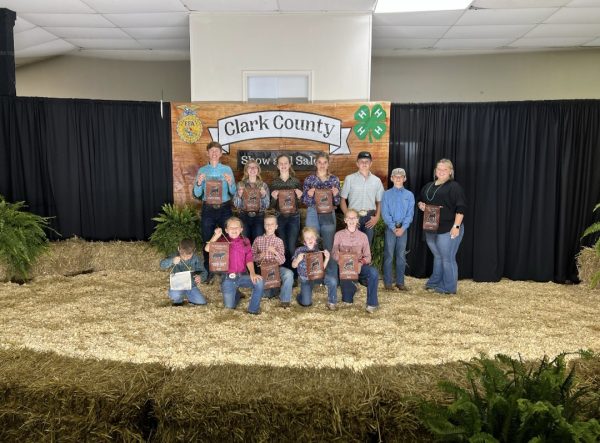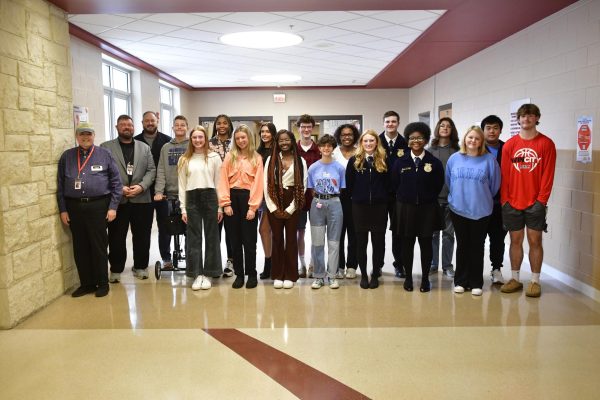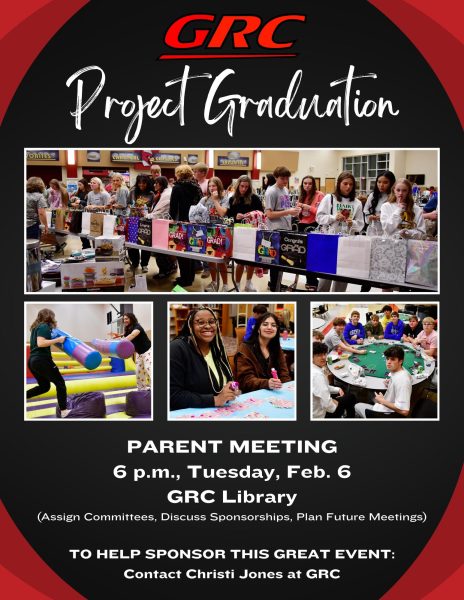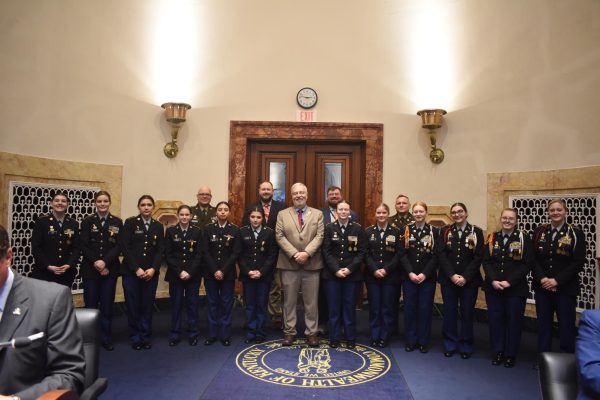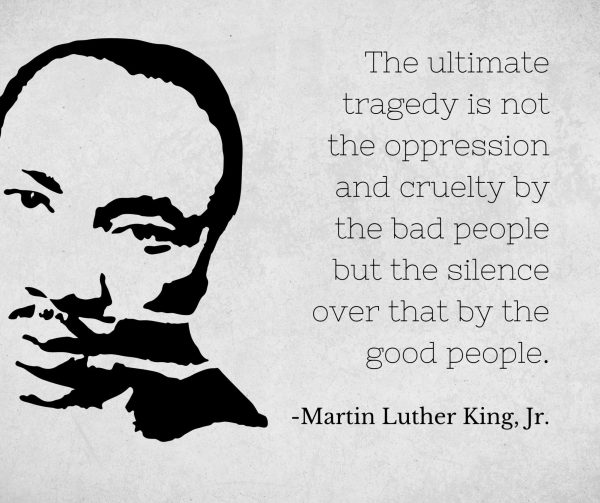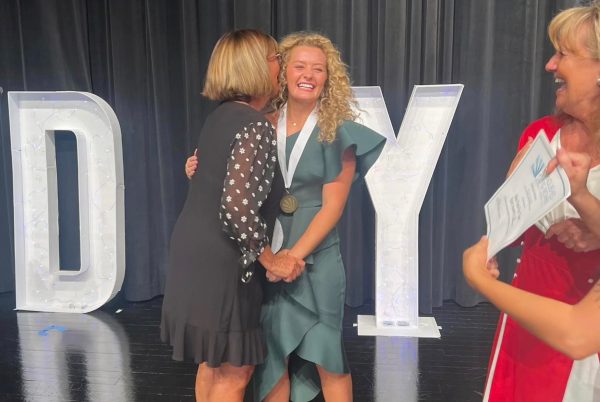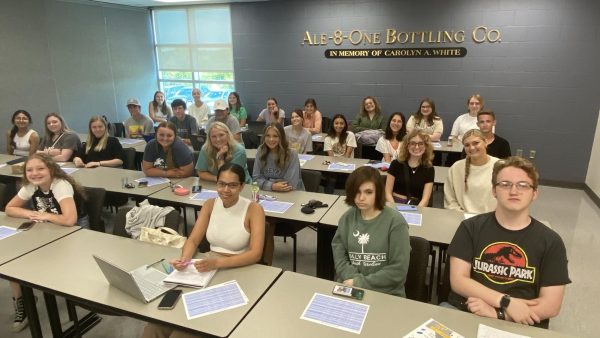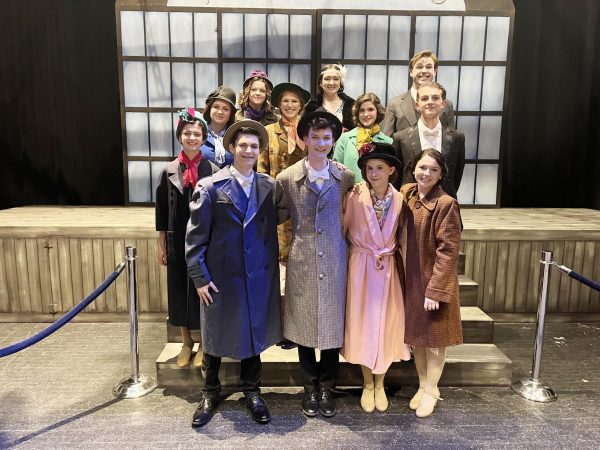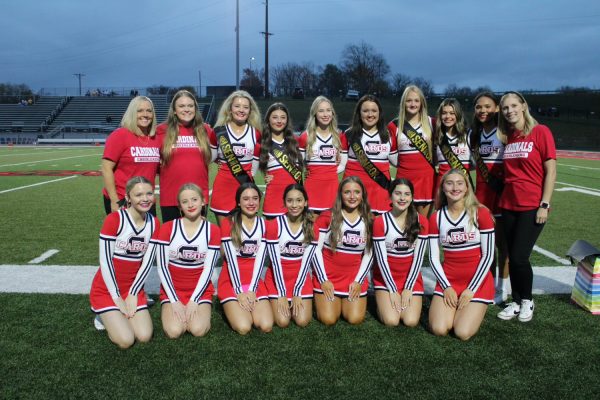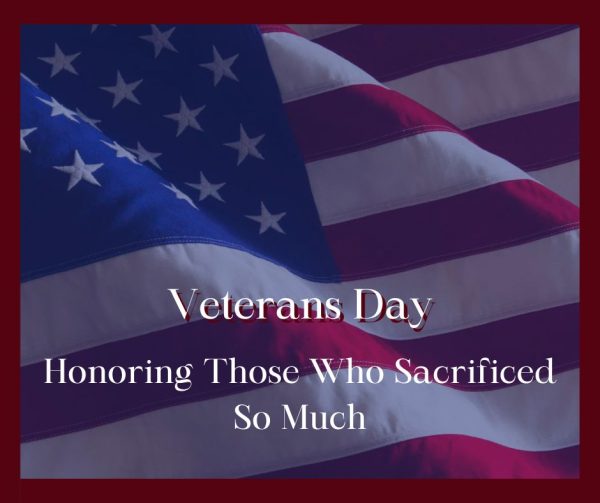A conversation with new superintendent Dustin Howard
Supt. Dustin Howard and his family
“Building cars is great and designing bridges is wonderful… but what better way to mold future generations than if you’re helping kids become productive members of society?” says Clark County School’s recently hired superintendent Dustin Howard.
Finding himself in a position he never thought he’d be in, Howard is promoting student voice, breaking the barriers that have held back student prosperity beyond school, establishing a fruitful culture and climate in our schools, and encouraging classroom engagement throughout Clark County.
Smoke Signals staff members Allee Mullins and Zach Ross were given the opportunity to sit down with Mr. Howard and ask him questions directly.
Q: What inspired you to pursue a career in education?
A: Probably my enjoyment of people in general. I really like working with people, helping people become better versions of themselves. What better platform is there to get that done than public education? In college, I was really drawn to the betterment of people. I wanted to make a gigantic impact/footprint in our world. I felt like building cars is great, and designing bridges is wonderful…but what better way to mold future generations than if you’re helping kids become productive members of society?
Q: How do you plan to impact those who you lead in the same way that your personal mentors have impacted you?
A: I would say bringing energy and enthusiasm into everything we do. When people are excited about coming to work, that is infectious. They are then excited to be in the building and in the classroom, which rubs off on our students.
Q: How have your past leadership positions uniquely prepared you for the role of superintendent?
A: I did not want to be superintendent; let me be clear about this. I didn’t graduate high school and college, then work for Clark County Schools and think, “One day I am going to be the superintendent”. What molded me into this skillset is that I have been in this community for 20+ years. I have relationships in this community with stakeholders. I used to have some parents as students, and their kids are now in my schools. The understanding that this is a one high school community is also very important.
Q: What are your top priorities for the current school year going into this role?
A: What we are really focused on is getting back to engaging classrooms. Making our classrooms not so much sit-and-get, but really focusing on cooperative learning opportunities. We are also focused on teacher recruitment and retention. You must have the right people with the right passion and keep those people. It’s very hard when you’re starting over and hiring 300 new teachers. Another thing is getting kids to come to school again, which seems very simplistic, but we need to get kids to want to come to school again.
Q: How do you plan to gather multiple platforms of feedback from the community?
A: I am working with Mr. Foudray and Clark County Education on getting out some staff surveys. I am going to start working with building leaders on getting community feedback; we plan on doing that by building. If we do this by district, it’s hard to target specific strengths and weaknesses within each building because they are all going to have different areas of growth. Then, we make a comprehensive plan as a school and district that we build collaboratively with the community, parents, and students. We are trying to get stakeholder input. We reach out to the community by Google Forms, surveys, and open house nights. During open house nights, we are able to get in-person feedback as opposed to clicking buttons.
Q: Do you have any definite intentions to advance school safety across the district?
A: We do. We have started a community-coordinated emergency management team. Recently we gathered our EOC director, sheriff’s department, police department, both county and city fire departments, EMT, resource officers, director of operations, and food service management at Central Office to make sure we are all on the same page in case of not only school-wide crisis, but community-wide emergencies as well. We already have 1:1 resource officers to campuses in the district, and we feel that we are miles ahead of other districts in that regard. We also have secure vestibules in pretty much every building so we have buzzer systems. Really, we just need to keep doing the little things right.”
Q: How do you intend to address the concerns that the academic needs of all students are being met?
A: We have to utilize our assessment data. We get a lot of information back from the spring Kentucky Standards Assessment. From there, we involve all stakeholders as we build our school and district improvement plans. Then, we use research-based instructional interventions to remove barriers, improve culture, and provide resources. We also have to be intentional about where we are putting resources, not just doing the same, comfortable things. If something is not working, we have to start assessing programs and practices, and again, if standing in front of the classroom and giving the same instruction to every student is not working, then we need to change that. We need to be more intentional about setting up classrooms where everyone is an active learner and listener. It sounds simple, but until we do that, we cannot do big things. My former football coach, Bill Tom Ross, always said, “The difference between good and great are the little things”, and we have to go back to doing the little things extremely well.
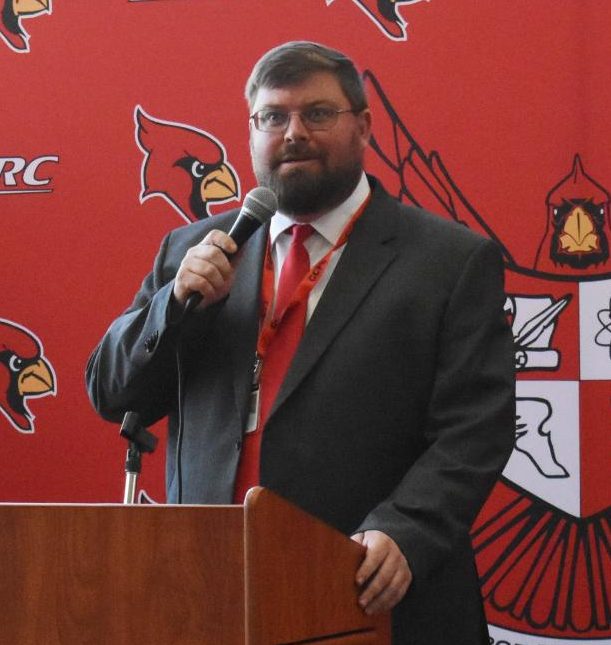
Q: Accepting this role coming off of a pandemic, how do you intend to spark academic ambition once again?
A: You have to have a clear vision and high expectations along with a lot of energy and passion. We need to provide teachers the resources to grow, which will then pour into student engagement. Until we do that, we are always just putting resources on kids who are not getting it. If more kids are not getting it than getting it, we are not targeting the right thing, which is initial instruction. We are making changes with strategies. Until we take ownership of our student’s progress, we are simply waiting for pre-prepared ‘36 ACT’ scores and that is not the way that is done. The good news is that we have control over that.
Q: How do you plan to fortify your relationships with students throughout Clark County Schools?
A: The biggest way is getting into classes and getting into the buildings. I want to be in classrooms each week. I’ve already been in every building multiple times. I like going to various schools’ lunches because I can see more kids at one time. Our cafeteria staffs are doing a great job. Just like life, it’s really important to break bread with people. I had chicken chunks with some third graders at Conkwright and I learned a lot about the third grade curriculum. I also learned about a dog named Spot, and a whole bunch of other things. I do not want to lose those values in this position. I always felt that the superintendent was defined as communicating with adults, not so much kids. I refuse that dynamic. I want to be a superintendent my own way.”
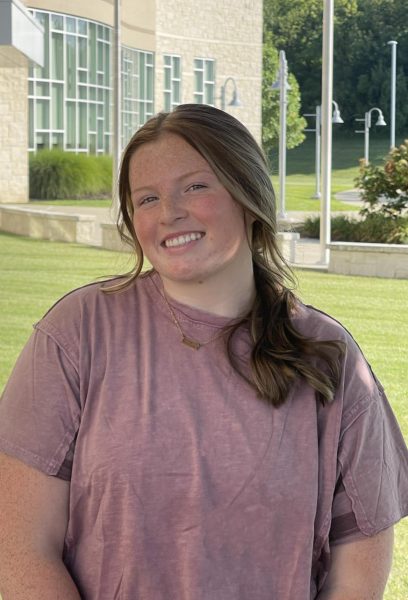
Threescore and five years ago marked the start of the world's best program: Smoke Signals. I, Allee Mullins, have had the honor to be a part of this program for the last year, and the year to come. Smoke...


